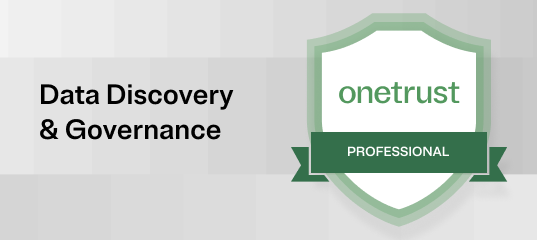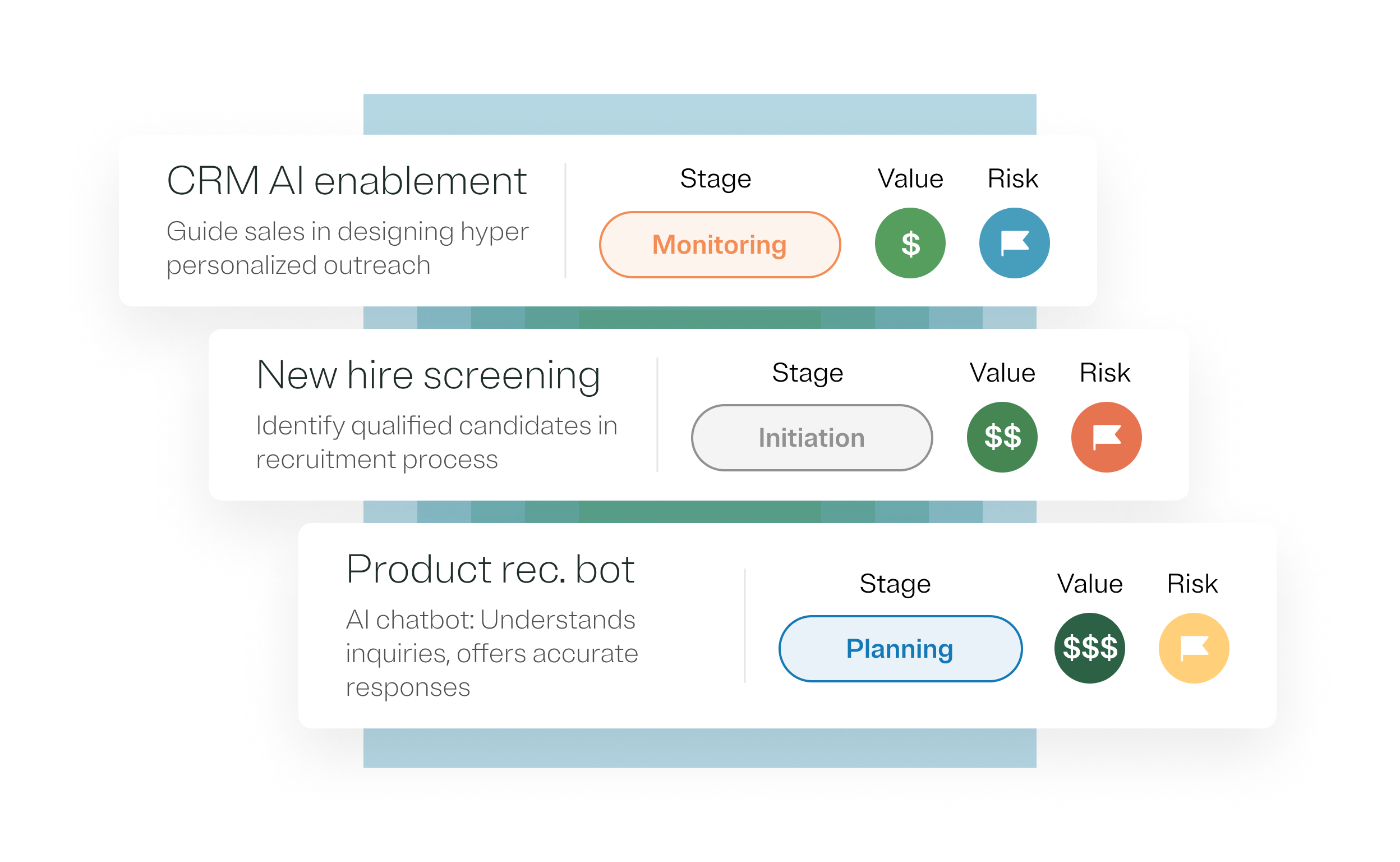The EU AI Act is the world's first comprehensive law on AI. We’ll help you prepare by extending your data governance, privacy, and security programs into your use of AI.
EU AI Act
Embrace artificial intelligence and prepare for EU AI Act compliance
Support business innovation and demonstrate accountability for the European Union’s Artificial Intelligence Act (EU AI Act) regulatory requirements with our AI Governance technology.
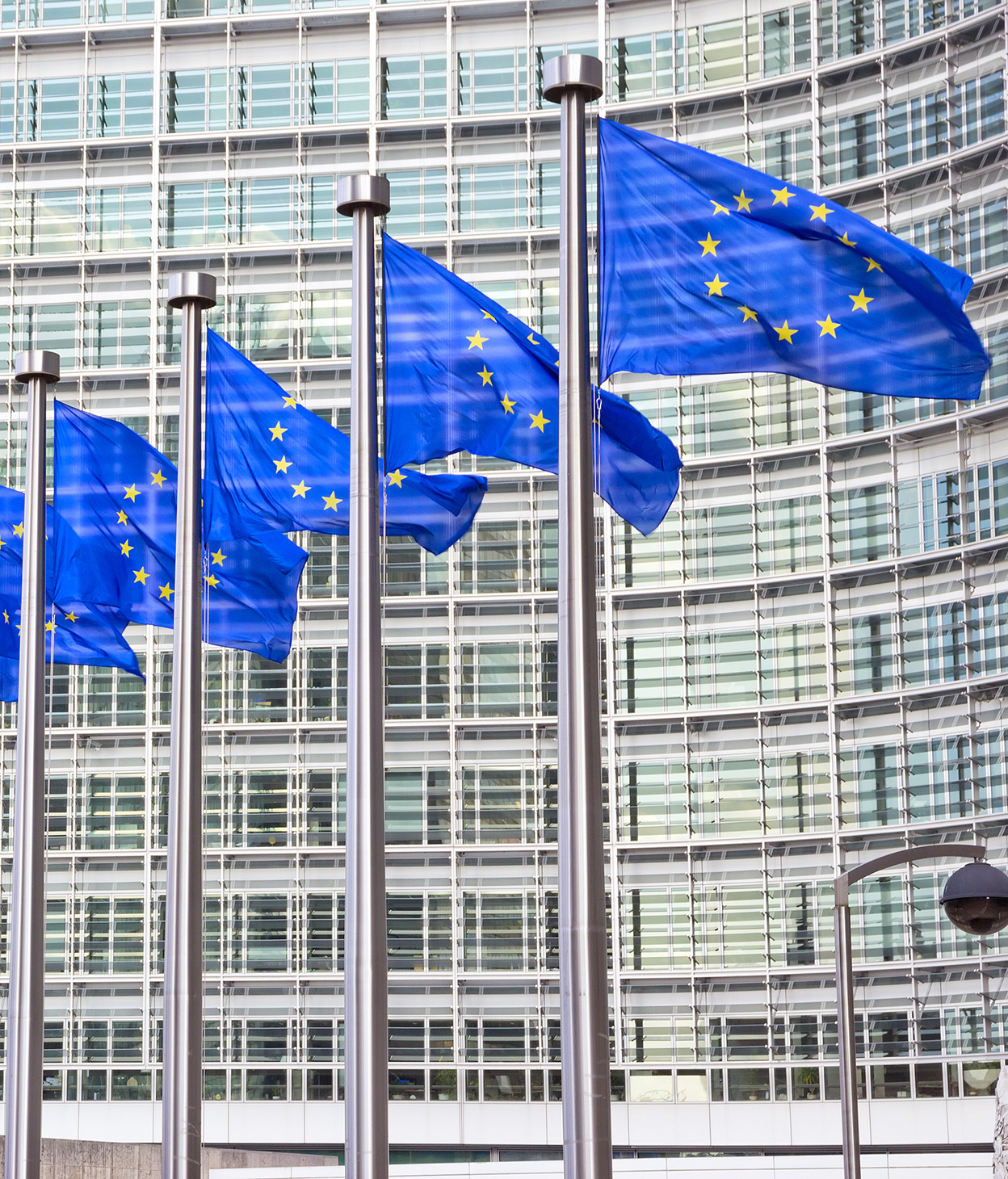
Prepare for the EU AI Act
Assess and classify AI systems against EU AI Act requirements and streamline third-party AI evaluation.
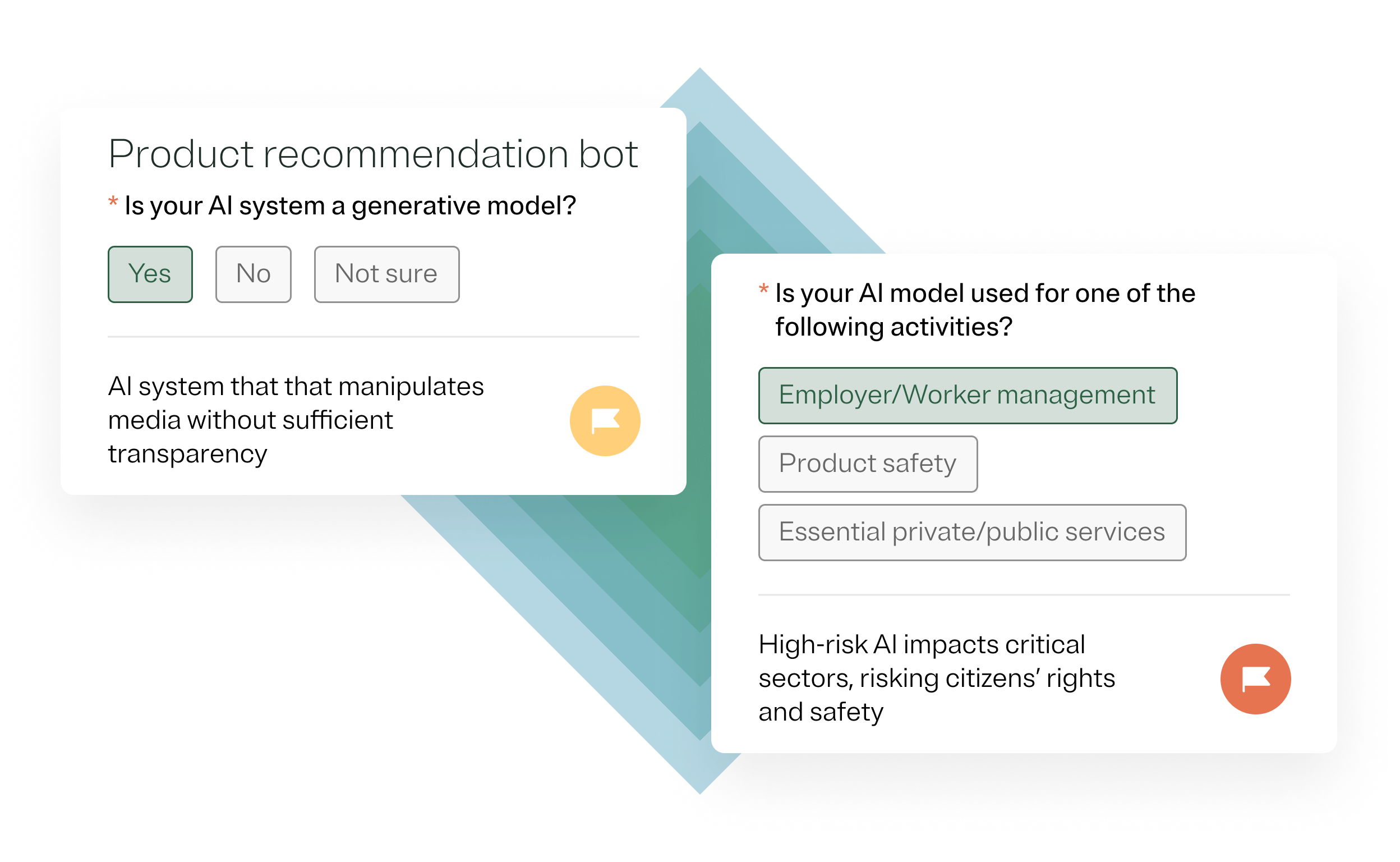
Manage documentation and policies to translate them into technical controls. Trigger notifications, user tasks, and application updates with ease.
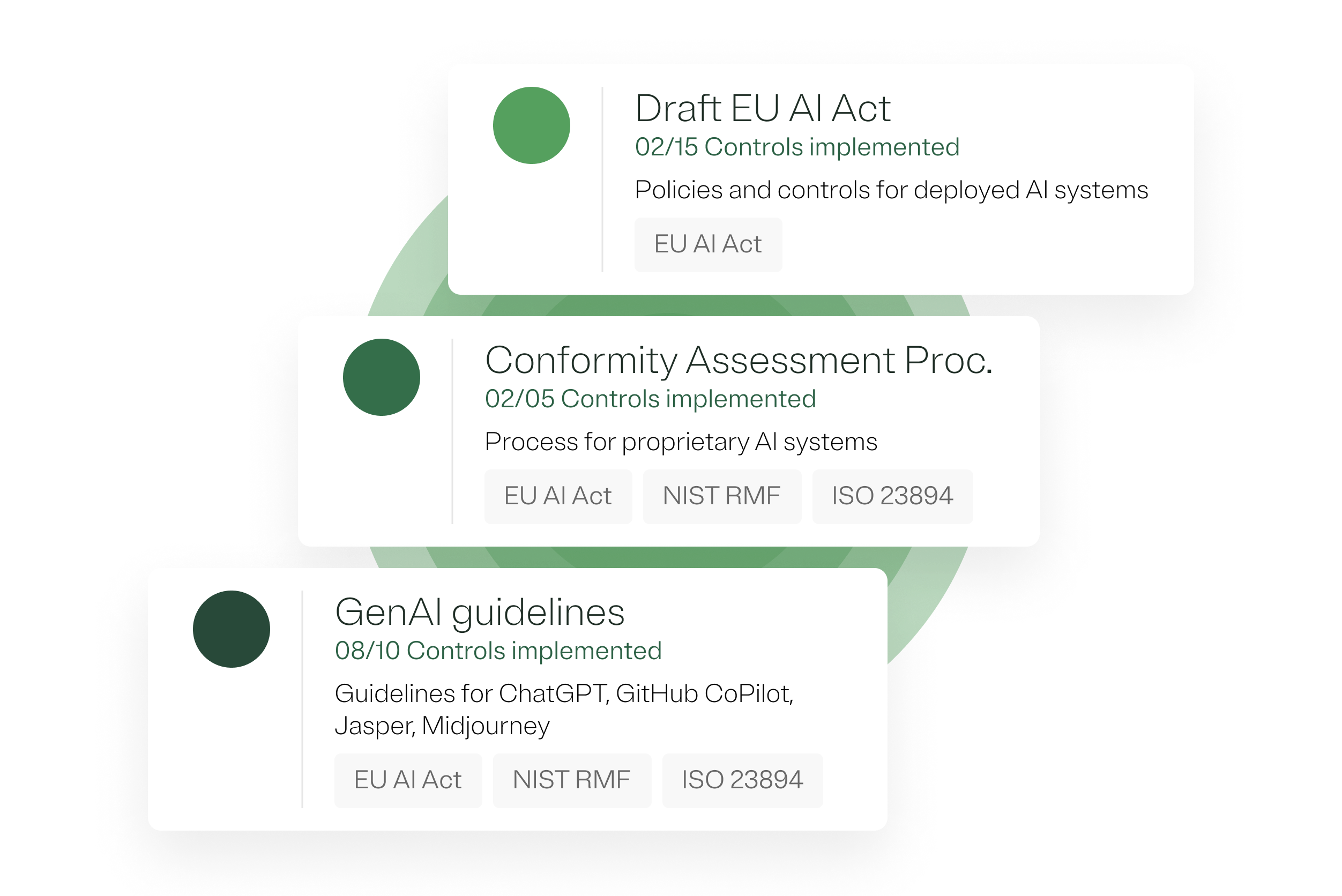
Identify risk in training data sets and de-risk inputs. Effectively protect and govern data in the ML pipeline through automated policy enforcement and remediation actions.
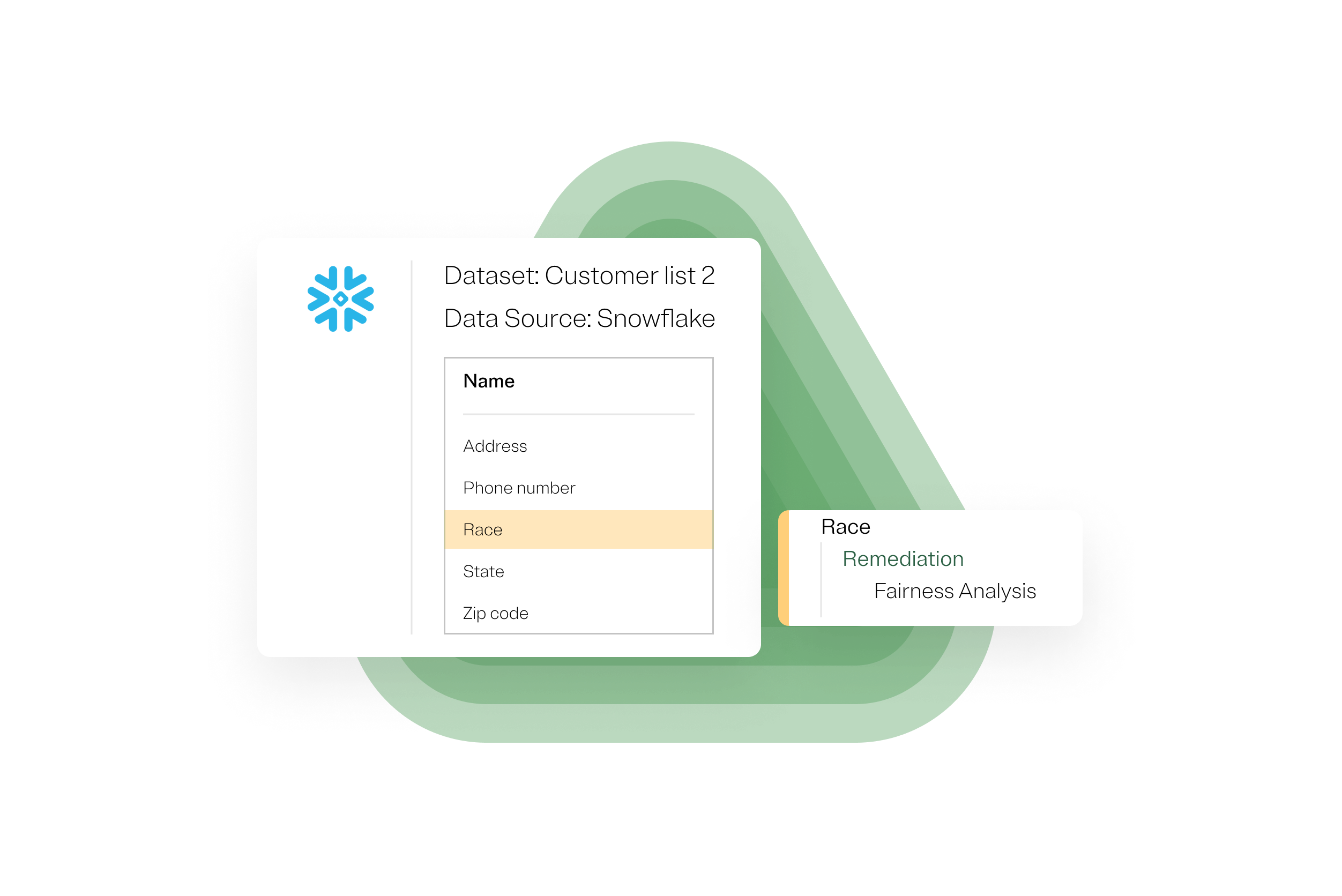
Generate reports, dashboards, AI impact and conformity assessments, and model cards for internal and external stakeholders.
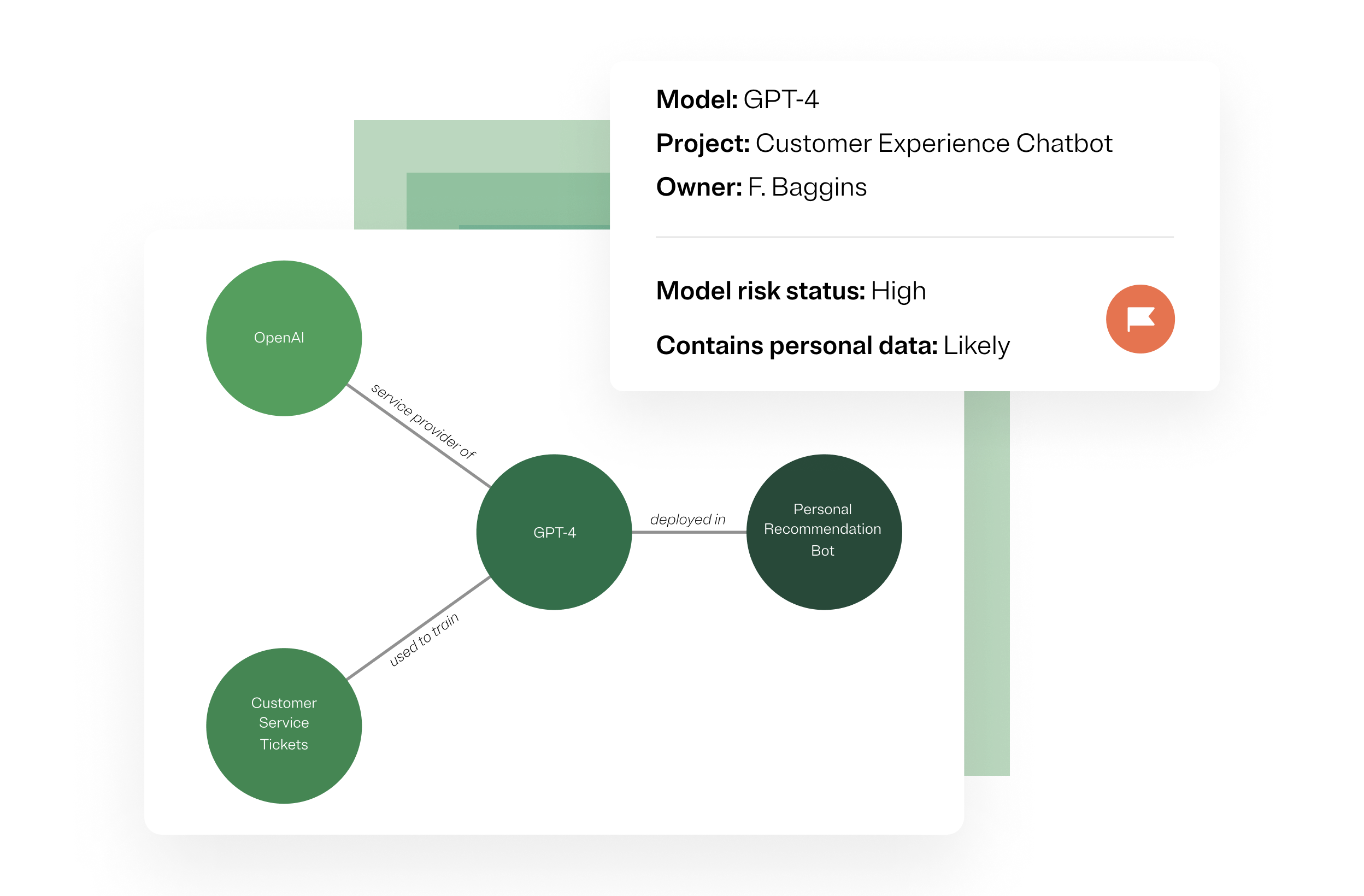
FAQs
We’re here to share what we know about the European Commission’s Artificial Intelligence Act and help your business prepare by applying AI governance and appropriate data safeguards. Explore answers to frequently asked questions below.
The EU AI Act defines multiple levels of permissible risk for AI – high risk, limited risk, and minimal risk. High-risk AI systems pose significant risks to the fundamental rights and freedoms of individuals or whole groups thereof. If an organization's risk level is greater than “limited risk,” such as “unacceptable risk,” it must undergo a conformity assessment and/or adjust AI models accordingly to be made available as a service or used.
In addition to defining risk levels, the EU AI Act specifies expectations of the following groups that interact with AI:
- Providers – those who build AI systems to place them on the market.
- Deployers – those who incorporate AI systems into their products or services
- Users – those affected by the decisions of AI systems
Similar to the GDPR, the AI Act has extremely broad coverage. It intends to cover the processing of personal data through 'partially or solely automated means', including any AI system.


